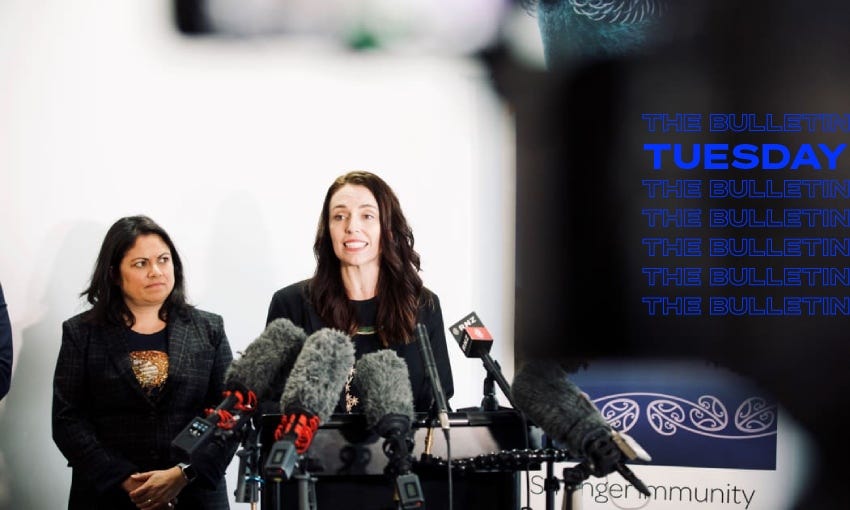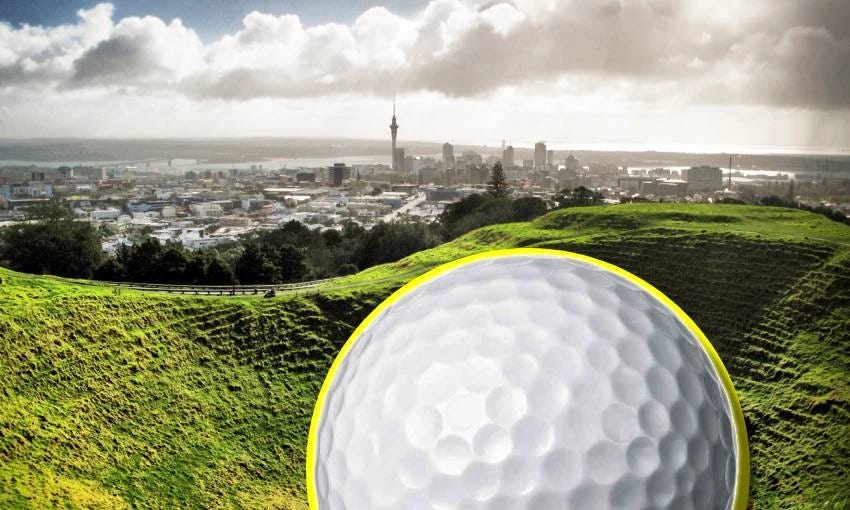Explaining the Royal Commission of Inquiry
The Inquiry into the government's Covid response is broadly focused and designed to inform future preparedness. It leaves the present day "variant soup" environment in something of a no man's land
Mōrena and welcome to The Bulletin for Tuesday, December 6, by Anna Rawhiti-Connell. Presented in partnership with Z Energy.
In today’s edition: new poll delivers one clear message and a clutch of other clues; Pharmac’s handling of the Trikafta announcement; what youth crime stats really say; but first, a look at the Royal Commission of Inquiry into the government's Covid response
Jacinda Ardern and Ayesha Verrall (Photo: RNZ / Marika Khabazi)
What’s in and out for the Royal Commission into the government’s Covid response?
As prime minister Jacinda Ardern announced yesterday, there will be a Royal Commission of Inquiry into the government's Covid response. RNZ has a handy explainer. Much of the questioning at yesterday’s post-cabinet press conference centred on what was in and what was out. Broadly the Commission will look into the overall response, including the economic response, to find what could be learned from it. Among other things, particular decisions taken by the Reserve Bank will be excluded. The Commission will be chaired by Australia-based epidemiologist Tony Blakely, former cabinet minister Hekia Parata and former treasury secretary John Whitehead. Blakely has provided plenty of commentary for New Zealand media over the last few years and has been a pragmatic and sometimes blunt voice. In February this year he warned that New Zealand’s approach to Omicron was “overcautious”
Timing protects Inquiry from “blame bombs” during an election year
Epidemiologist Michael Baker welcomed the inquiry. The National party is still calling for an independent economic inquiry, while the Greens view the scope of the Commission of Inquiry as excluding the impact of the government’s economic response on inequality. The Act party questioned the timing. The Inquiry won’t be complete until February 2024. The Herald’s Claire Trevett notes (paywalled) that’s probably a good thing, “insulating it from politics to a certain degree” and “the distraction of politicians mining it for blame bombs to hurl at each other in the heat of an election year.”
The importance of using peacetime to prepare for the future
In the past when I’ve reported on calls for an inquiry into the pandemic, I’ve had the odd bit of feedback asking what good an inquiry would serve now. It’s not an unfair question, given these are retrospective and things could look very different in February 2024. While there will be political ramifications and required accountability, the earnest intent of these inquiries is to learn from the past in order to prepare for the future and prevent harm. Last month, the Harvard Medical Journal spoke with experts about how prepared the world is for whatever comes next. John Connor, associate professor of microbiology at Boston University, said “How you keep in peacetime the things you need in wartime is a tough question to answer, but it seems to me that’s what we need.”
Covid cases may peak week of Christmas
The inquiry will focus on the past to inform the future. Peace-ish time it may be, it still leaves the present and the Covid variant soup we currently find ourselves in something of a no man’s land. As Stuff’s Hannah Martin reports, a lead modeller says as many as one in 20 New Zealanders could have Covid in the week of Christmas, including a “large” proportion who would be asymptomatic. As Newsroom’s Marc Daalder reports, in late July health officials said asymptomatic testing could help to cut Covid transmission but opposed recommending it because it could reduce "the available workforce" if people discovered they had the virus. There were 34,528 Covid infections and 40 Covid-related deaths reported over the past week. As these graphs from RNZ’s Farah Hancock reveal, 27% of cases on Sunday were reinfections.
Start growing your money with Kernel Wealth
Built by and for New Zealanders, Kernel Wealth’s versatile products can meet a wide range of personal finance needs. Whether you’re interested in index funds, high-interest savings accounts or a new KiwiSaver provider, their fully digital platform and helpful, fully human customer support team can help you find an innovative, tax-efficient and quality-first product that meets your needs. To learn more about their offering or to find out how it could work for you, visit Kernel Wealth today. (Sponsored)Kernel Wealth is the manager and issuer of the Kernel Funds Scheme and Kernel KiwiSaver Plan. Investing involves risks. For more information please see the Product Disclosure Statements at www.kernelwealth.co.nz
Unmistakable trend line, hint of plague-on-both-your-houses
In what might be the last broadcast news poll of the year, the 1News Kantar poll last night had National up one point to 38%, Labour down one point to 33%, Act up two points to 11% and the Greens holding steady on 9%. New Zealand First has risen one point to 4%. Toby Manhire has fresh analysis of the poll on The Spinoff this morning, writing that while the trend line is unmistakable, there’s “also a hint of plague-on-both-your-houses” to the poll. Manhire also has a lot of good graphs plotting results over time for the graph aficionados out there.
What went on with Pharmac’s media approach to the Trikafta announcement
The Trikafta announcement on Sunday was undoubtedly brilliant news for those with cystic fibrosis. However, media handling of the announcement by Pharmac is raising questions. Emily Writes, who is the parent of disabled children and has campaigned with the advocacy group Patient Voice Aotearoa, documents what happened. Pharmac has blacklisted MediaWorks from any future media interaction with Pharmac until they can be trusted again. That happened after Today FM’s (a Mediaworks station) Rachel Smalley appeared on Lloyd Burr’s show on Friday afternoon after hearing the news from four sources. The embargoed press release did not arrive until Sunday.
What youth crime statistics tell us
Stuff’s James Halpin has looked at youth crime statistics to determine whether the concern over rising youth crime is backed by data. Based on police victimisation data, Halpin finds there has been an increase in youth crime since the end of the 2021 lockdown but in numbers nowhere close to where they were between 2014 and 2018. It’s another good graph that shows that while numbers have risen lately, the overall trend is still a drop-off since 2014. However, vehicle-based crime, like car thefts, committed by those aged between 10 and 14, has increased steeply since 2021, with average monthly numbers since January 2021 (112 victimisations) about twice what they were in the years prior.
Click and collect
Green MP Jan Logie will not stand for re-election in 2023
Commerce Commission to release its market study report into building materials today (remember the Gib crisis?)
Chief ombudsman's office to look at whether Official information Act is being weaponised to delay or stifle the flow of information
Auckland airport asks for patience over the summer as 1600 roles remain vacant
Partial asset sales are back on the table in Christchurch (see below for Bernard Hickey on similar conversation in Auckland)
Got some feedback about The Bulletin, or anything in the news? Get in touch with me at thebulletin@thespinoff.co.nz.
If you liked what you read today, share The Bulletin with friends, family and colleagues.
Bernard Hickey argues Wayne Brown should keep the airport – and sell the golf courses; Sam Brooks reports on Creative New Zealand’s eyebrow-raising choice for a digital agency, the embattled We Are Indigo; Christopher Smol explains why the world’s cinema community has named a near-plotless Belgian movie the best film ever made: and Jayne Ramage says volunteering is easier than you think (and maybe even fun?!).
New Zealand dropped from Sevens circuit for “more iconic” locations
I’m including this as a former Hamilton resident who finds the implication that Hamilton is not iconic, insulting. The Sevens World Series is getting a remodel and after 20 years of costumes, rampant drunkenness on Courtney Place and the launch of the more family-friendly tournament in Hamilton, New Zealand is being dropped off the circuit in favour of more "iconic" destinations. You can catch the last hurrah of the Sevens in New Zealand in the city of the future in January.











